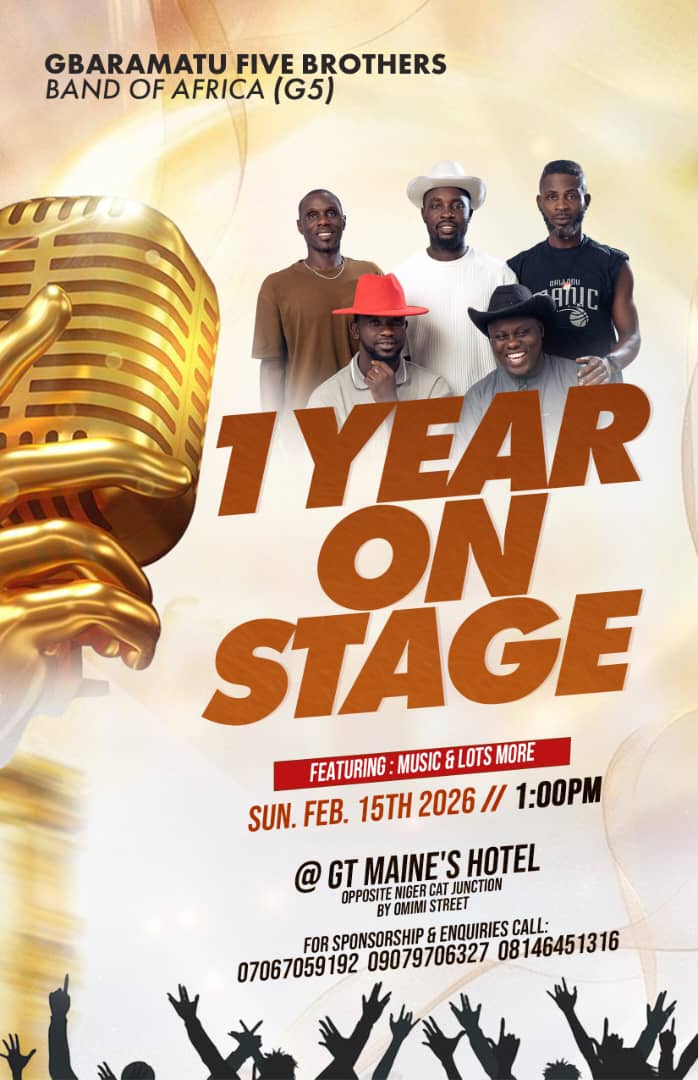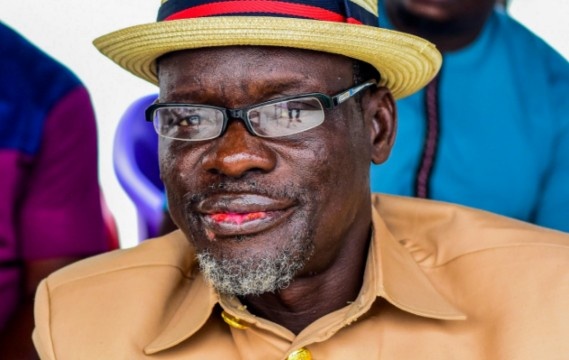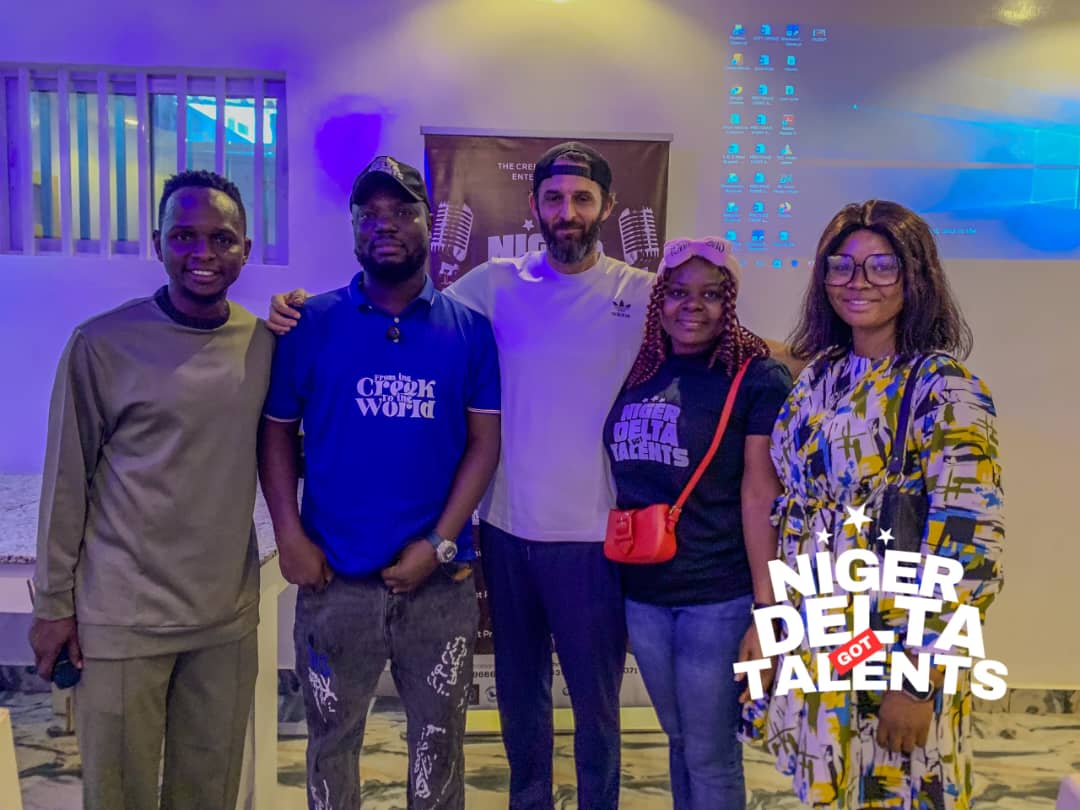Fela's Metamorphosis and the Birth of a Pan-Africanist By Abai Francis
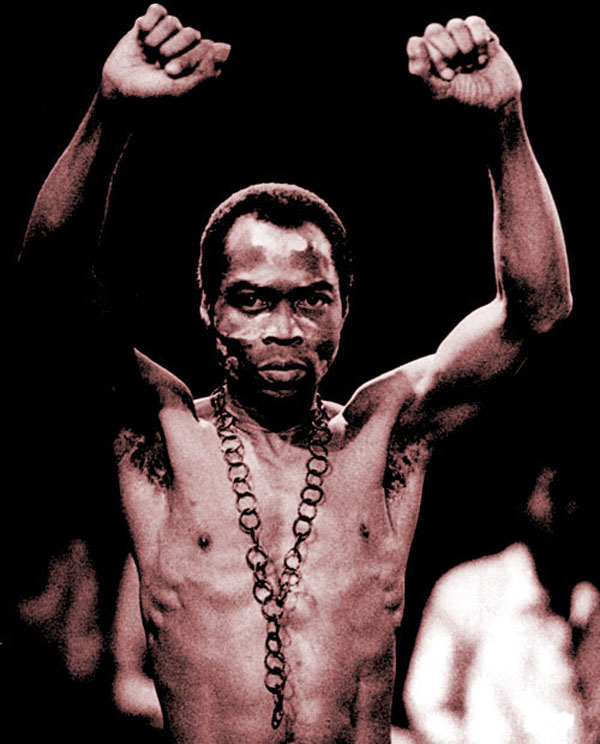
Did you know that Fela Aníkúlápó Kútì's mother was the first woman to drive a car in Nigeria and his father was the first president of the Nigeria Union of Teachers, and that he married 27 women members of his band to lay to rest accusation he was kidnapping women?
Fela Aníkúlápó Kútì, also known as Abàmì Ẹ̀dá, the Nigerian musician, bandleader, composer, political activist, and Pan-Africanist that is regarded as the King of Afrobeat (a Nigerian music genre that combines West African music with American funk and jazz) was supposed to be a medical doctor like his brothers, Beko Ransome-Kuti and Olikoye Ransome-Kuti. However, Fela, who ended up a mixture of radicalism and prophetism, took after his mother's activism role and his father's ministerial role by using his songs to fight and preach against injustices and oppressions meted on Africans by their leaders and colonial oppressors.
Fela was born as Olufela Olusegun Oludotun Ransome-Kuti on 15 October 1938 in Abeokuta, the modern-day capital of Ogun State (which at the time was a city in the British Colony of Nigeria) to Reverend Israel Oludotun Ransome-Kuti, an Anglican minister, school principal, and the first president of the Nigeria Union of Teachers, NUT; and to Chief Funmilayo Ransome-Kuti, an anti-colonial feminist and women's rights activist.
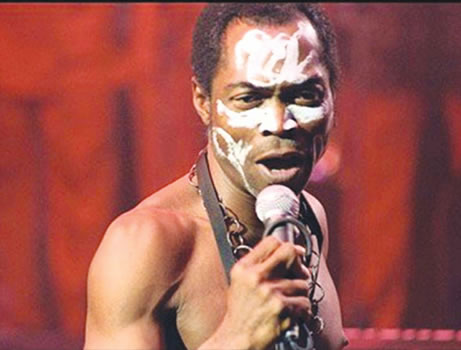
Both of his parents played active roles in the anti-colonial movement in Nigeria, most notably the Abeokuta Women's Riots which was led by his mother in 1946. Fela is also a cousin to the writer and laureate Wole Soyinka, winner of a Nobel Prize for Literature—they are both descendants of Josiah Ransome-Kuti, who is Fela's paternal grandfather and Soyinka's maternal great-grandfather.
From Abeokuta Grammar School, Fela was sent in 1958 to London to study medicine, but decided to study music instead at the Trinity College of Music. The trumpet was his preferred instrument. While there, he formed the band Koola Lobitos and played a fusion of jazz and highlife. Fela called his style Afrobeat, a combination of Fuji music, funk, jazz, highlife, salsa, calypso, and traditional Yoruba music.
Fela's metamorphosis began in 1969 when he took his band to the United States and spent ten months in Los Angeles. While there, he discovered the Black Power movement through Sandra Smith (now known as Sandra Izsadore or Sandra Akanke Isidore), a partisan of the Black Panther Party. This experience heavily influenced his music and political views. Soon after, the Immigration and Naturalization Service was tipped off by a promoter that Fela and his band were in the US without work permits. The band performed a quick recording session in Los Angeles that would later be released as The '69 Los Angeles Sessions.
Three years after Nigeria gained independence, Fela relocated back to the newly independent Federation, trained as a radio producer for the Nigerian Broadcasting Corporation, NBC, and played for some time with Victor Olaiya and his All-Stars. He later renamed his band Africa '70 as lyrical themes changed from love to social issues. He formed the Kalakuta Republic—a commune, recording studio, and home for many people connected to the band—which he later declared independent from the Nigerian state. He also set up a nightclub in the Empire Hotel, first named the Afro-Spot and later the Afrika Shrine, where he both performed regularly and officiated at personalised Yoruba traditional ceremonies in honor of his nation's ancestral faith. Fela's metamorphosis also saw him changed his name to Anikulapo, which means "He who carries death in his pouch", with the interpretation: "I will be the master of my own destiny and will decide when it is time for death to take me". From there on he stopped using the hyphenated surname "Ransome" because he considered it a slave name.
Fela's music became popular among the Nigerian public and Africans in general when he decided to sing in Pidgin English, due to language barrier, so that individuals all over Africa could enjoy his music. But as popular as Fela's music had become in Nigeria and elsewhere, it was unpopular with the ruling government, who later carried out frequent raids on the Kalakuta Republic.
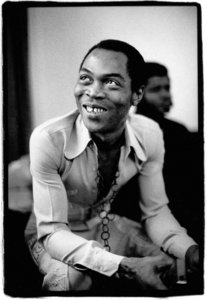
But Fela, who was never deterred, in 1977, released the album Zombie, which heavily criticized Nigerian soldiers, and used the zombie metaphor to describe the Nigerian military's methods. The album was a massive success and infuriated the government, who raided the Kalakuta Republic with 1,000 soldiers. During the raid, Fela was severely beaten, and his elderly mother (the first woman to drive a car in Nigeria) was fatally injured after being thrown from a window. The commune was burnt down, and Fela's studio, instruments, and master tapes were destroyed. Fela would later claimed that he would have been killed had it not been for a commanding officer's intervention as he was being beaten. Fela's later response to the attack was to deliver his mother's coffin to the Dodan Barracks in Lagos, General Olusegun Obasanjo's residence, and to write two songs, "Coffin for Head of State" and "Unknown Soldier," referencing the official inquiry that claimed an unknown soldier had destroyed the commune.
Fela and his band took up residence in Crossroads Hotel after the Shrine had been destroyed along with the commune. Although in 1960 Fela had married his first wife, Remilekun (Remi) Taylor, with whom he had three children (Femi, Yeni, and Sola), however in 1978 he again married 27 more women, many of whom were dancers, composers, and singers with whom he worked. The marriage served not only to mark the anniversary of the attack on the Kalakuta Republic, but also to protect Fela and his wives from authorities' false claims that he was kidnapping women. Later, he adopted a rotation system of maintaining 12 simultaneous wives.
Fela had two concerts in 1978: the first was in Accra, in which rioting broke out during the song "Zombie", which caused Fela to be banned from entering Ghana; the second was after the Berlin Jazz Festival when most of his musicians deserted him due to rumours that he planned to use all of the proceeds to fund his presidential campaign. Disappointed by their fees, Tony Allen, the band leader and almost all the musicians, resigned. Since then, Baryton player Lekan Animashaun became band leader and Fela created a new group named Egypt 80 which reflected the view that Egyptian civilization, knowledge, philosophy, mathematics, and religious systems are African and must be claimed as such.
In 1979, Fela formed his political party, Movement of the People (MOP), but it quickly became inactive due to his confrontations with the government of the day. MOP preached Nkrumahism and Africanism. In 1983, Fela nominated himself for president in Nigeria's first elections in decades, but his candidature was refused. He further infuriated the political establishment by implicating ITT Corporation's vice-president, Moshood Abiola, and Obasanjo, in the popular 25-minute political screed entitled "I.T.T. (International Thief-Thief)".
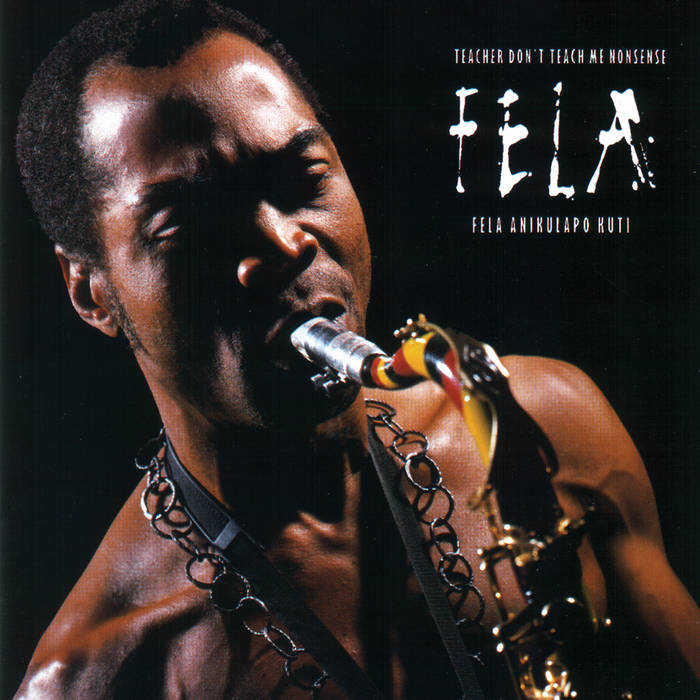
In 1984, Muhammadu Buhari's government, of which Fela was a vocal opponent, jailed him on a charge of currency smuggling. Amnesty International and others denounced the charges as politically motivated. Amnesty designated him a prisoner of conscience, and other human rights groups also took up his case. After 20 months, General Ibrahim Babangida released him from prison. On his release, Fela divorced his 12 remaining wives, citing "marriage brings jealousy and selfishness" since his wives would regularly compete for superiority.
Fela continued to release albums with Egypt 80 and toured in the United States and Europe while continuing to be politically active. In 1986, he performed in Giants Stadium in New Jersey as part of Amnesty International's "A Conspiracy of Hope" concert along with Bono, Carlos Santana, and the Neville Brothers. In 1989, Kuti and Egypt 80 released the anti-apartheid album "Beasts of No Nation" that depicted U.S. President Ronald Reagan, UK Prime Minister Margaret Thatcher, and South African State President Pieter Willem Botha on its cover. The title of the composition evolved out of a statement by Botha: "This uprising [against the apartheid system] will bring out the beast in us."
Fela's album output slowed in the 1990s, and eventually, he ceased releasing albums altogether. On 21 January 1993, he and four members of Africa 70 were arrested and were later charged on 25 January for the murder of an electrician. Rumours also speculated that he was suffering from an illness for which he was refusing treatment. However, there had been no confirmed statement from Fela about this speculation.
On 3 August 1997, Fela's brother Olikoye Ransome-Kuti, already a prominent AIDS activist and former Minister of Health, announced that Fela had died on the previous day from complications related to AIDS. Fela had been an AIDS denialist, and his widow maintained that he did not die of AIDS. His youngest son, Seun took the role of leading Fela's former band Egypt 80. As of 2022, the band is still active, releasing music under the moniker Seun Kuti & Egypt 80. Since his death in 1997, reissues and compilations of his music have been overseen by his son, Femi Kuti.
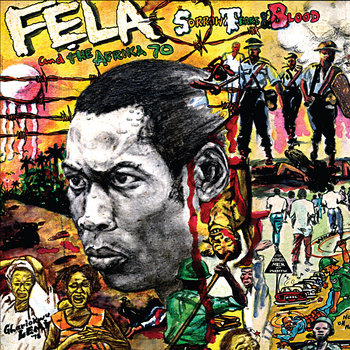
Fela's discography (studio albums) released are: Fela Fela Fela (1970), Fela's London Scene (1971), Why Black Man Dey Suffer (1971), Open & Close (1971), Na Poi (1971), Shakara (1972), Roforofo Fight (1972), Afrodisiac (1973), Gentleman (1973), Alagbon Close (1974), Noise for Vendor Mouth (1975), Confusion (1975), Everything Scatter (1975), Expensive Shit (1975), He Miss Road (1975), Unnecessary Begging (1976), Kalakuta Show (1976), Upside Down (1976), Ikoyi Blindness (1976), Before I Jump Like Monkey Give Me Banana (1976).
Others are: Excuse-O (1976), Yellow Fever (1976), Zombie (1977), Stalemate (1977), No Agreement (1977), Sorrow Tears and Blood (1977), Shuffering and Shmiling (1978), Unknown Soldier (1979), I.T.T. (International Thief Thief) (1980), Music of Many Colours (1980) (with Roy Ayers), Authority Stealing (1980), Original Sufferhead (1981), Perambulator (1983), Army Arrangement (1985), I Go Shout Plenty (1986), Teacher Don't Teach Me Nonsense (1986), Beasts of No Nation (1989), Confusion Break Bones (1990), O.D.O.O. (Overtake Don Overtake Overtake) (1990), Underground System (1992), Lagos Baby 1963 to 1969 (2008).
Live albums include: Live! (with Ginger Baker) (1971), J.J.D. (Johnny Just Drop!!) (1977), V.I.P. (Vagabonds in Power) (1979), Live in Amsterdam (1983), Live in Detroit 1986 (2010)
Compilations, The Best Best of Fela Kuti (1999), The Underground Spiritual Game (2004), The Best of the Black President 2 (2013).
Source: Wikipedia
#penglobalentertainment
